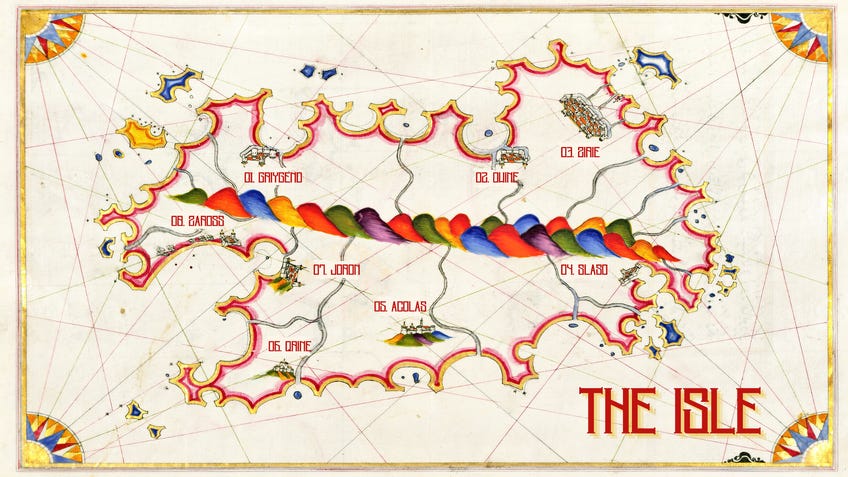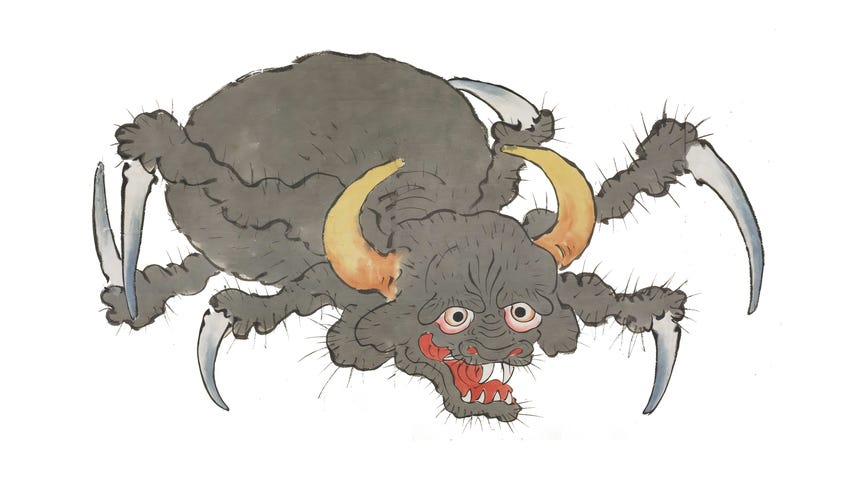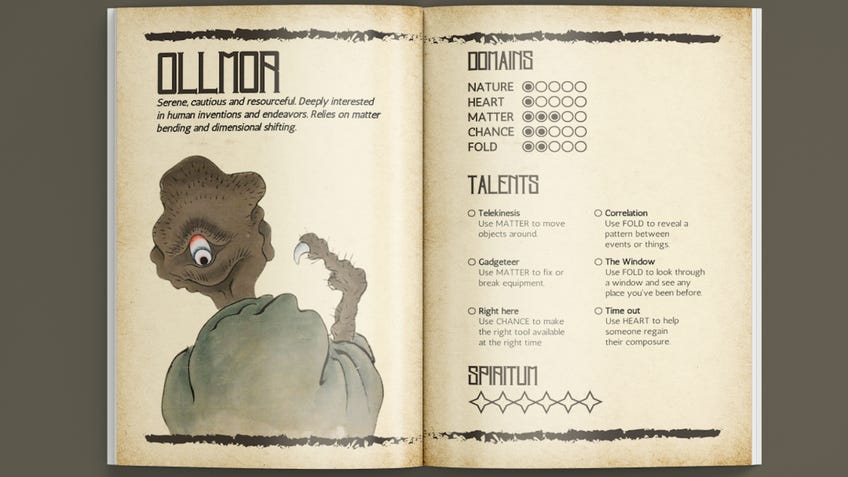Impressions: Journaling RPG Not A Demon imagines community action through the eyes of a maligned spirit
Don't judge a monster by its ancient scroll artwork.
There’s a common trend among journaling RPGs to focus on introspection - synthesising player action and setting reaction as a way of connecting and understanding one’s place in . Not a Demon, the newest tabletop RPG from designer Cezar Capacle, complicates that setup by putting players in the role of a spirit meant to guide humanity that can only appear as a monstrous, frightening entity.
Capacle states that Not a Demon is “about perseverance and creativity, about seeing beyond appearances and being true to who you are,” and there is certainly much of that in the RPG’s core gameplay loop. Players visit various locations dotting an abstracted island region known simply as The Isle, scouting out problems and attempting to aid towns without revealing their true form.
As a spirit, players can disguise themselves and walk among the populace but lack the ability to interact directly. Using their domain-gifted powers, often manifesting through the weather, luck, emotions or matter’s physical properties, spirits must guide The Isle’s inhabitants away from danger and destruction. But doing so runs the risk of revealing their true form, which humans find hideous and the stuff of nightmarish folk tales. While spirits are immune to weapons, the collective ire and distrust of The Isle can taint one’s spirit and force them out of the physical realm.
Mechanically, Not a Demon works via a fairly simple dice pool (a modified version of the Dash/Charge system featured in our list of hackable games) and the use of clocks to track progress toward both mission success and catastrophic consequences. When using one of their spiritual powers, player’s roll a number of six-sided dice that can change depending on their expertise, natural affinities and risking additional consequences. Fallout comes in the form of chaos - tracked on its own clock that ticks toward failure - additional costs or taint that will limit a Spirit’s resource potential.
As mentioned above the core loop of gameplay will be familiar to those who have tried other journaling RPGs, and easily understood by everyone else. Choose a location, define a problem with the help of some included oracle tables, then use your powers to guide the populace towards the actions and behaviours you desire until either you succeed or are revealed as a supposed demonic force bent on fear and discord.
What differentiates Not a Demon from its peers is how the rulebook positions the spirit and people who live on The Isle. Spirits endeavour to understand humanity, confused by their inscrutable need to categorise and separate the world even as they are enamoured by their art and poetry, their contests and sport, their communal ties and heart’s passions. In turn, humans continually misunderstand the spirits’ intentions, interpreting their forms as omens of doom and attributing disasters to their appearance. If too careless, spirits can find their name cursed so thoroughly that it hollows out their essence and banishes them from this plane.

The Isle’s locations are described through notable personas, each with their own problems, secrets and quirks. Trouble tables almost always involve interpersonal or inter-communal conflict, indicating that humanity causes its own issues and blame spirits as a way to dump guilt. Everyone hides shadows in their heart, and every town views itself as the victim of some injustice. But humanity’s selfish tendencies are balanced by their potential for empathy - this is what the player-controlled spirit is attempting to foster through their limited powers.
Playing Not a Demon from the perspective of the spirit keeps players from justifying humanity’s actions - understanding does not mean condoning. It also means that injustice and prejudice manifest as mortal harm, and players are forced to consider the fallout not only of malice but also inaction and negligence. Capacle encourages players to “express your pain vividly”, imagining what it might look and feel for bigotry to score someone’s body, or for the opinions of a population to trap someone in a crisis of identity.
Not a Demon works perfectly as a solo journaling RPG but also supports groups of players who can take turns in the spotlight. The game provides the unaccustomed player enough systems and reference tables to act as a wonderful first outing into the world of narrating your own adventures. But there’s a wealth of existential meat to chew for those excited to dive into a complex and bittersweet cosmology.

More information about Not a Demon can be found on its Itch.io page and is available as a digital PDF or a print-on-demand zine. Both feature art from the Bakemono Zukushi “Monster” Scroll, which Capacle cites as a major inspiration for this game as he pondered how these mythic creatures felt about being labelled as monsters.


